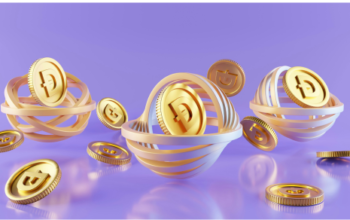What is inflation, and how does it affect my finances? Inflation is the rate at which the general level of prices for goods and services is rising-and, conversely, a fall in the purchasing power of money. During inflation, the cost of living increases, and money doesn’t stretch as far as it did before.
The following are some measures I can use to protect my savings from inflation. Some of these assets include stock, bond, real estate, and TIPS as they tend to outpace inflation.
Should I change investment strategy in times of inflation? Yes, it’s a good idea to shift your investment strategy and shield yourself against inflation. That might involve shifting more into assets like stocks, commodities (gold, oil), and inflation-protected bonds. Further portfolio diversification helps reduce any potential risks.
What are the effects of inflation on the rates of loans and mortgages? It is usual that inflation would make interest rates high because of efforts by the central banks to combat inflation. Thus, loan and mortgage and even credit card borrowing could be more costly, making the funding of a purchase or servicing debt more expensive.
Should one pay off debt faster during inflation? Paying off high-interest debt is normally a good idea, but especially during inflation, as it could increase with rising interest rates. Credit card debt, personal loans, and other high-interest debts should be targeted for payoff first.
What are good investments during inflation? Assets that tend to perform well during inflation include stocks, real estate, commodities (gold, oil), and Treasury Inflation-Protected Securities (TIPS). These investments generally hold their value or increase in value as inflation rises.
How do I adjust my budget during an inflation? Review the monthly expenses for essential items to prioritize. Reducing non-essential spending, look for cheaper ways to purchase regularly used items and ways to spend less on utilities, groceries, and transportation.
How is diversification of portfolio important in terms of inflation? Diversification during the times of inflation actually safeguards your finance because of diversified risks involved from other classes of assets. Stocks, bonds, commodities, and real estate spread inflation impacts over an asset class.
To stay ahead of inflation, you could explore other ways of increasing your income, such as taking up a side business, skills training for higher-paying jobs, or monetizing hobbies. Rental income and dividends can be another way of generating passive income to help mitigate the effects of inflation.
Should I be worried about inflation if I have a fixed salary? A fixed salary makes it more difficult to keep up with the rising costs, but one must take action by budgeting, cutting expenses, and seeking additional income opportunities. One can negotiate a raise or seek career advancement.
Ways on how to hedge inflation on the retirement savings A good way for protecting retirement savings from inflation would be to see to it that retirement savings go into inflation-resistant assets, either stocks, TIPS, or real estate. Increasing contributions may also be effective in offsetting your savings’ reduction in purchasing power.
Inflation increases costs of living mainly because it usually increases the everyday goods and services charged. This has the effect that the cost of living increases higher. Some living expenses, especially groceries, fuel, housing, and healthcare services, may push up, thus consuming more of one’s disposable incomes.
Should I buy a house during inflation? Buying a home during inflation can be beneficial if you can lock in a low mortgage rate. However, housing prices may rise, so it’s important to consider your financial situation, interest rates, and long-term plans before making a decision.
How are inflation and wages related? Inflation tends to increase the cost of goods and services by much more than the increase in wages. If your wages don’t increase as fast as inflation, your purchasing power falls. Negotiating raises or seeking higher-paying opportunities can help counteract this effect.
What can I do to reduce expenses in inflation? Cut costs by reviewing monthly expenses and focusing on places where one can save money. One should consider cheaper brands, cutting subscriptions, dining out less, and switching to more affordable utilities or insurance plans.
Can inflation affect my insurance premiums? Yes, inflation can indeed make insurance premiums surge, especially for auto, health, and home insurance. This can be mitigated by regularly shopping for competitive rates and adjusting your coverage to suit your current financial situation.
How can I control grocery spending in an inflationary economy? To manage rising grocery costs, shop with a list, use coupons, buy in bulk, and choose generic brands. Meal planning and avoiding food waste can also reduce your overall grocery spending.
Is it a good idea to refinance during inflation? Refinancing during inflation can be a good idea if you can lock in a low fixed interest rate before rates rise further. However, you need to weigh the costs of refinancing against the potential savings.
What does inflation do to my credit score? Inflation itself does not directly affect your credit score, but the increased cost of living and rising interest rates can make it harder to manage debt. Keeping your credit utilization low, paying bills on time, and reducing debt will help maintain a healthy credit score.
How do I prepare for long-term financial stability with inflation? To plan for long-term stability, create a well-diversified portfolio, keep your emergency fund, and stay ahead of rising costs by adjusting your income, expenses, and investment strategies. Planning and budgeting for the long term are necessary to ride through inflationary times.




